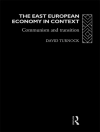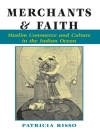This edition includes a modern introduction and a list of suggested further reading.
The
Iliad ends in a cliffhanger. People in antiquity wanted to know exactly what had happened after the funeral of ‘Hector the breaker of horses’ and before the Greeks returned home in triumph.
Quintus of Smyrna undertook to tell the story anew in
The Fall of Troy.
Reinforcements bring hope to the beleaguered city of Troy, even as new champions arise for ...
Sobre el autor
Passages from The Fall of Troy suggest Quintus was a native of Asia Minor who wrote toward the end of the third century CE. He describes himself as a youthful she...
¡Compre este libro electrónico y obtenga 1 más GRATIS!
Idioma Inglés ● Formato EPUB ● Páginas 320 ● ISBN 9781411467996 ● Tamaño de archivo 0.3 MB ● Edad 99-17 años ● Traductor Arthur S. Way ● Editorial Barnes & Noble ● Publicado 2012 ● Descargable 24 meses ● Divisa EUR ● ID 5864809 ● Protección de copia Adobe DRM
Requiere lector de ebook con capacidad DRM












